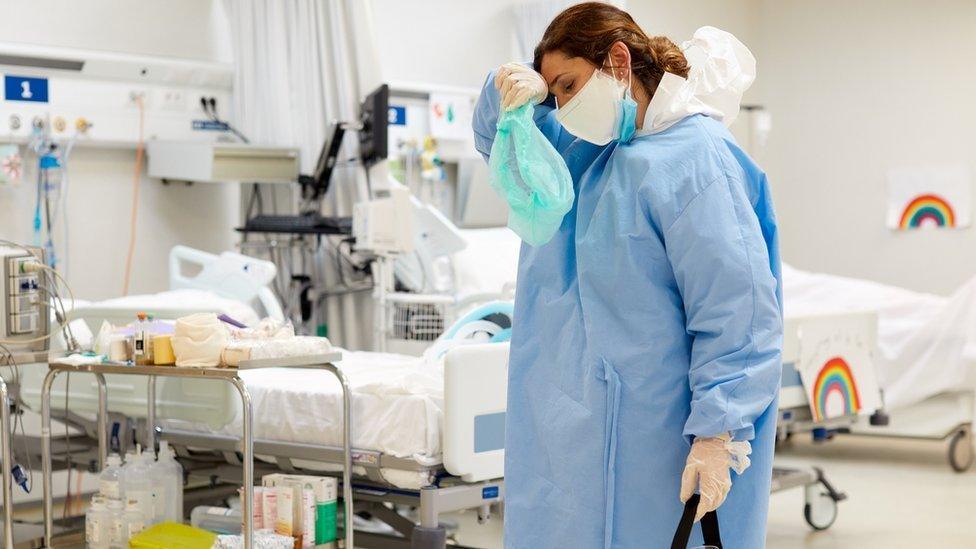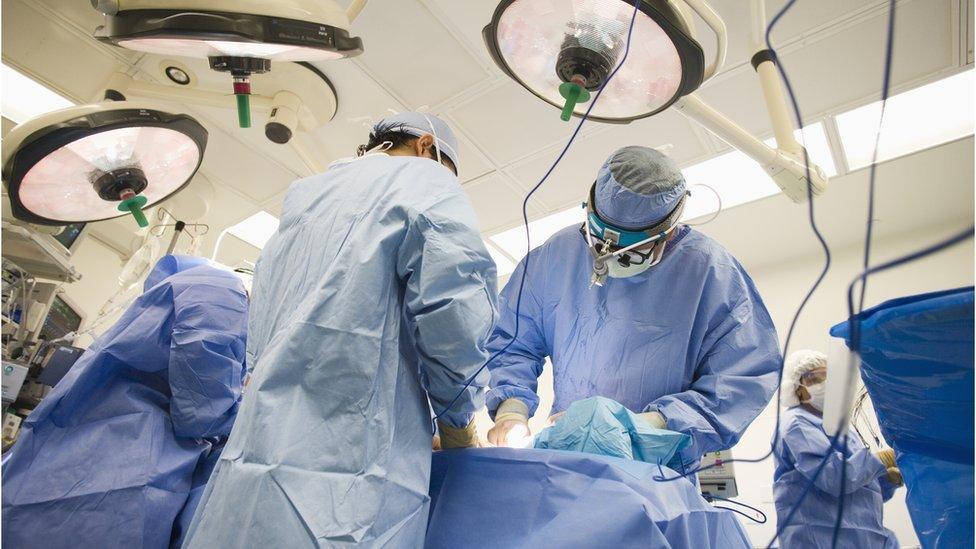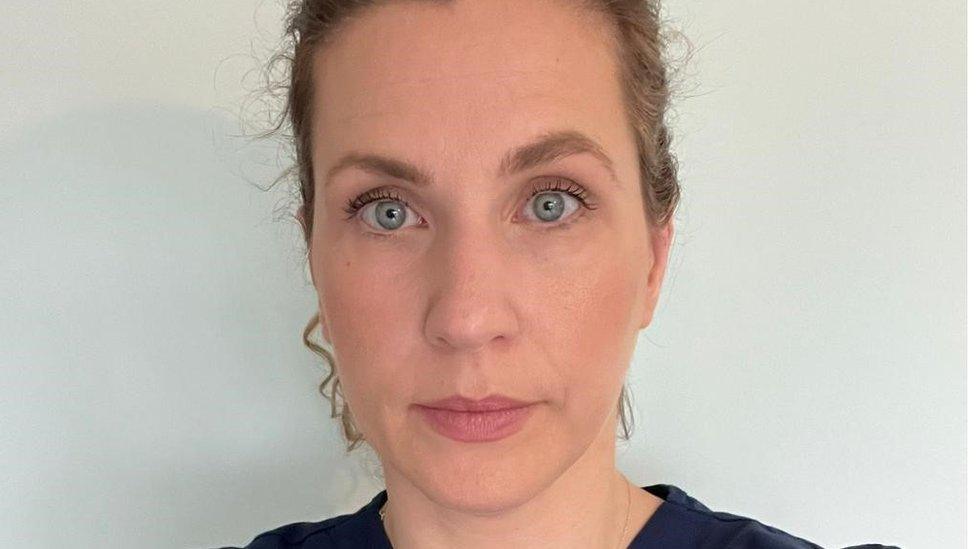NHS target to end long outpatient waits is missed
- Published

A Scottish government target to eliminate long waits for NHS treatment has been missed, new figures show.
Last summer, the then health secretary Humza Yousaf set a goal to eradicate waits of more than a year to see a doctor or nurse as an outpatient.
But Public Health Scotland (PHS) data shows 31,498 patients were still waiting more than a year as of March this year.
The Scottish government said the number of people with long waits was falling.
Last September, the Scottish government missed another target, to eliminate two-year waits for planned hospital procedures.
The PHS data shows 6,985 people still face a wait longer than two years for routine surgery, a reduction of 322 since the target date of 31 September last year.
In total, the number of in and outpatients on hospital waiting lists across Scotland as of 31 March was 626,966, a small increase on the previous quarter.
A total of 31,498 outpatients had ongoing waits beyond the 52-week target as of 31 March.
This compares to 37,321 when the target was first announced, and a decrease of 2,512 from 31 December, 2022.

The Scottish government said the opening of new national treatment centres, such as this one in Inverness, would help deal with waiting time delays
NHS Borders, Grampian and Ayrshire and Arran are among the worst affected health boards.
The majority of specialties have outpatients waiting more than a year, but the worst affected is ophthalmology (5,875), followed by gynaecology (5,178) and dermatology (4,106).
Scottish Labour deputy leader Jackie Baillie accused Mr Yousaf of leaving behind a "catastrophic legacy" as health secretary.
She added: "Despite the tireless efforts of NHS staff, record numbers of Scots are stuck languishing on NHS waiting lists and thousands have been left anxious and in pain for over a year.
"Blame for this national emergency lies squarely with Humza Yousaf and his failed NHS recovery plan, which saw waiting lists spiral after the pandemic."
'Unacceptable waits'
Scottish Conservatives health spokesman Dr Sandesh Gulhane added: "We know that if patients suffer lengthy delays for appointments or crucial diagnostic tests, the greater the risk is to their health. In the worst-case scenarios, these delays lead to needless deaths."
Health Secretary Michael Matheson said: "While there is more still to do, there has also been a continued reduction in long waits over 18 months as well as a significant reduction in long waits over two years since targets were announced last July.
"The Scottish government continues to work closely with NHS boards to maximise capacity and reduce the length of time people are waiting for appointments and treatment.
"Challenges remain and there are still unacceptable waits in some specialities, but we remain committed to delivering sustained improvements and year-on-year reductions through maximising capacity across Scotland, enhancing regional and national working and the redesign of services of care."


Last summer, when he was health secretary, Humza Yousaf set what he called "ambitious targets" to end the longest waits for planned care.
So far, none have been met.
There are things happening to try to reduce waiting times, but how quickly you will be seen often depends on where you live or how complex your condition is.
For example, NHS Forth Valley has trained specialist surgical nurses to perform more straightforward procedures; while Fife and Tayside have changed the way they use operating theatres to increase the number of cataract procedures they can carry out.
National Treatment Centres that specialise in planned care are also seen as part of the long-term solution but they have been beset with delays.
Some are now up and running, others still need to recruit enough staff, and some are yet to built.
The Scottish government says the number experiencing the longest waits has improved, but that is not much consolation for patients who may be worried or in pain, or whose life is impacted by delays getting access to care.
Related topics
- Published19 January 2023

- Published6 July 2022

- Published30 March 2023
